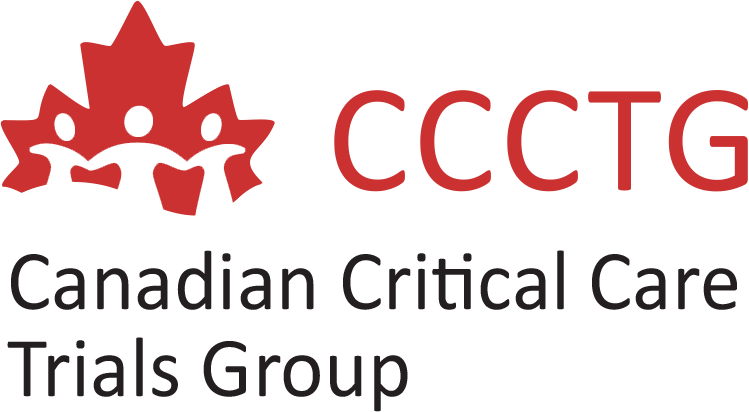Frailty, Rehabilitation, and Outcomes in critically ill adult and pediatric survivors of COVID-19 (REVIVe)
Background
Many adults and some children with COVID-19 become critically ill and need advanced life support in the Intensive Care Unit (ICU). Frailty is a medical condition of reduced function and health. Adults with frailty have a lower chance of surviving critical illness. The investigators are still learning about critically ill adults with COVID-19, and do not have much information on how frailty affects outcomes in critically ill children, with or without COVID-19. Rehabilitation can help survivors of COVID-19 by improving strength and improve quality of life (QOL).
Objectives
The main goal of this research study is to see if patients with frailty have a lower chance of surviving COVID-19 critical illness and more health problems after survival than patients without frailty. The investigators will also study the types of rehabilitation received by patients with COVID-19.
Methods
The investigators will include adults and children with COVID-19 who are admitted to the ICUs that participate in the study. The investigators will gather data about each patient, including before and during their illness.
Outcomes
The investigators will collect level of frailty, function, and types of therapy, or rehabilitation received by patients. In adults, The investigators are most interested in learning if frailty influences mortality, or death. In children, the investigators are most interested in whether children with COVID-19 critical illness are more likely to develop frailty. The investigators will also study post-hospital discharge location in survivors (e.g., home, rehabilitation).
Relevance
The COVID-19 pandemic is a global public health crisis. It is critical to understand how COVID-19 critical illness affects groups of people who are at higher risk, and the impact on outcomes that are important to patients, like functioning and QOL. The results will help policy makers plan post-hospital services for survivors, help healthcare workers understand the importance of rehabilitation practice for patients with COVID-19, and researchers develop treatments to improve QOL after COVID-19.
Alberta Childrens Hospital, Calgary, AB BC Children Hospital Research Institute, Vancouver, BC Brantford General Hospital, Brantford, ON Centre Mère-Enfant Soleil du CHU de Québec. Quebec City, QC Children's Hospital of Eastern Ontario, Ottawa, ON Childrens Hospital of Winnipeg, Winnipeg, MB Universite de Montreal, Montreal, QC CHU Sainte Justine (CFCF), Montreal, QC Hamilton General Hospital, Hamilton, ON Hôpital du Sacré-Cœur de Montréal, Montreal, QC Hôpital Fleurimont - Sherbrooke (CHUS), Sherbrooke, QC Hôpital Hôtel-Dieu de Lévis, Levis, QC Juravinski Hospital, Hamilton, ON Kingston Health Sciences Centre, Kingston, ON London Children's Hospital - LHSC, London, Ontario Montreal Children's Hospital, Montreal, QC Niagara Health - St. Catharines, St. Catharines, ON Stollery Children's Hospital, Edmonton, AB Saskatchewan Health Authority, Regina, SK SickKids, Toronto, ON St. Josephs Hamilton Healthcare, Hamilton, ON Sunnybrook Research Institute, Toronto, ON The Ottawa Hospital, Ottawa, ON University of Alberta, Edmonton, AB University of Calgary, Calgary, AB
Laurie A. Lee, Dr. Stephen Freedman, Dr. Srinivas Murthy, Dr. Brenda Reeve, Dr. Matthew Weiss, Dr. Kusum Menon, Dr. Roger Zemek, Dr. Stasa Veroukis, Dr. Han Ting Wang, Dr. Laurence Ducharme-Crevier, Dr. Karim Serri, Dr. David Williamson, Dr. Fred D'Aragon, Dr. Francois Lamontagne, Dr. Patrick Archambault, Dr. Bram Rochwerg, Dr. Tim Karachi, Dr. John Muscedere, Dr. Gord Boyd, Dr. Douglas Fraser, Dr. Jackie Bosch, Dr. Ashwini Namasivayam-MacDonald, Dr. Maureen Meade, Dr. Patricia Fontela, Dr. Erick Duan, Dr. Jennifer Tsang, Dr. Ari Joffe, Dr. Eric Sy, Dr. Christina Maratta, Dr. Shaun Morris, Dr. Rae Yeung, Dr. Deborah Cook, Dr. Lehana Thabane, Dr. Karen Burns, Dr. Rob Fowler, Dr. Andrew Seely, Dr. John Marshall, Dr. Sean Bagshaw, Dr. Carmel Montgomery, Dr. Kirsten Fiest, Dr. Tom Stelfox
